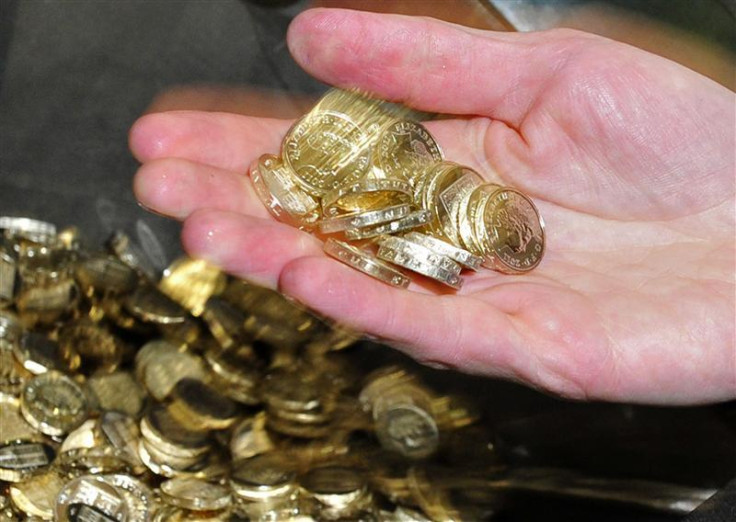Libor Fixing: Martin Brokers Fined £630,000 as It Can't Afford £3.6m Charge

Martin Brokers has become the second inter-dealer broker firm to be fined for misconduct related to Libor fixing after the Financial Conduct Authority slapped it with a £630,000 charge.
The FCA revealed in a statement that the broker, which offers services for a wide range of financial products, including interest rates, foreign exchange and derivatives, would have been fined £3.6m (€4.4m, $6m) but it did not have enough money on its balance sheet to pay it.
"This was a significant cross-border investigation and, in particular, the FCA would like to thank the US Commodity Futures Trading Commission (CFTC) for their cooperation," said the watchdog in a statement.
"Martin Brokers also agreed to settle an action brought by the CFTC, who imposed a financial penalty of $1.2m."
"Martin Brokers would have been fined £3.6m but for the fact that the firm was able to show that it could not pay a penalty of this amount in addition to the other regulatory fines that Martins faces in relation to Libor."
The FCA also blamed the corporate culture for the failings related to Libor.
"Interdealer brokers are expected to act as trusted intermediaries and are key conduits of market information. Martin Brokers abused this position of trust by providing false information to Panel Banks, with no regard for the integrity of the market. This is unacceptable behaviour from any market participant," said Tracey McDermott, director of enforcement and financial crime, at the FCA.
"The culture at Martin Brokers was that profit came first. Compliance was seen as a hindrance and the firm lacked the means to detect the "wash trades".
"In this environment, broker misconduct was almost inevitable. Similar cultural failings at other firms have caused havoc in the financial services industry. As we have said before, firms need to take their responsibilities to uphold market integrity seriously. If firms fail to heed these warnings then we will take action against them."
What Happened?
The FCA said Martin Brokers, between January 2007 and December 2010, colluded with a trader at UBS to manipulate the (Japanese Yen) JPY Libor rates for his benefit.
The misconduct involved Martins deliberately disseminating incorrect or misleading Libor submission levels by:
• communicating skewed suggestions to some Panel Banks as to where they believed the published JPY Libor rate would set for a particular day (known as "run-throughs")
• creating false (or "spoof") orders, with the aim of influencing Panel Banks' views of the cash market so that they would make JPY Libor submissions at levels that benefitted the UBS trader
• requesting certain Panel Banks to make specific JPY Libor submissions
The watchdog said that the UBS trader then made corrupt brokerage payments to reward Martin Brokers for their efforts "to manipulate the Libor submissions of panel banks through the use of fake trades known as 'wash trades'."
"Martins Brokers misconduct involved several brokers and occurred over a number of years," said the FCA in a statement.
"Two brokers (including one manager) were central to the collusion, although at least three other individuals (including two managers) spanning two desks played a role.
"Martin Brokers' risk management systems and controls were inadequate to monitor and oversee its broking activity. There was no effective oversight of the brokers involved, which meant that they were able to freely engage in misconduct.
"The brokers' misconduct was exacerbated by a poor compliance culture within Martins which was a result of its heavy focus on revenue at the expense of regulatory requirements.
"Martins' inadequate systems, controls, supervision and monitoring meant that the brokers' misconduct continued for several years. For similar reasons, the "wash trades" which were exceptionally large, were not identified as suspicious. "
What is Libor?
Libor valuations directly influence the value of trillions of dollars of financial deals between banks and other institutions.
The benchmark reference rates are used in euro, US dollar and British sterling over-the-counter interest rate derivatives contracts and exchange-traded interest rate contracts.
© Copyright IBTimes 2025. All rights reserved.






















